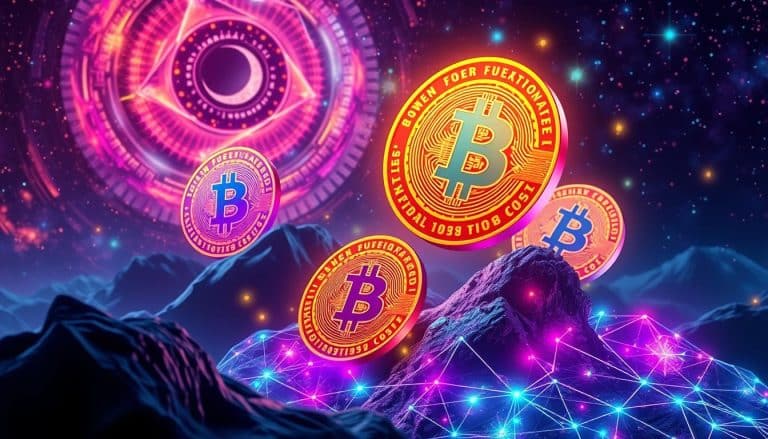Unraveling the ‘Do Your Own Research’ Meme Impact
You’ve likely seen it, heard it, or even used it yourself – the phrase “do your own research” has become a viral meme in today’s digital landscape. It’s a call to arms, a challenge to question mainstream narratives, and often a battle cry for those seeking to promote their own alternative viewpoints.
But what does this phrase truly mean? And how does it impact our understanding and interaction with the world of information that surrounds us? In this article, we’ll delve into the “do your own research” meme, its origins, implications, and its influence on our society’s collective consciousness. So buckle up, it’s time to do some research on “doing your own research”.
Key Takeaways
- The “do your own research” meme gained popularity around controversial political discussions and has expanded into other areas like pop culture and financial markets, including cryptocurrencies. It encourages individual exploration, questioning mainstream narratives and promoting critical thinking.
- The meme encapsulates societal feelings towards information overload and skepticism towards mainstream media. It serves as a tool for expressing dissatisfaction, creating humor, and evoking shared experiences among internet users.
- The impact of this meme extends beyond humor and shared experiences into information dissemination. While it promotes skepticism and independent thought, it also has the potential to spread misinformation, highlighting the ambiguous power of digital culture.
- The “do your own research” meme plays significant roles on social media platforms. It adapts fluidly to various discussion topics, fostering a culture of skepticism and independent thinking, and serving as a potent amplifier of complex messages.
- The meme disrupts traditional communication paradigms, encourages active participation in discussions, and brings change in public discourse. It weaves complex layers of meaning, fostering a confrontational yet participatory culture.
- “Do your own research” meme has expanded beyond the digital realm into daily conversations and real-life applications. It’s now seen in political debates and financial market discourses, often urging individuals to probe deeper into claims.
- Despite their digital birth, memes like “do your own research” are a form of modern folklore. They reflect societal values and cultural narratives, thereby passing down certain lessons or directives to the digitally savvy generation.
Origins of the “Do Your Own Research” Meme
In the dynamic world of internet culture, the phrase “do your own research” has made its way as a prevalent meme. Experience its inception and dissect its meaning to gain a deeper perspective on this viral phenomenon.
Emergence in Pop Culture
The meme, “do your own research,” emerged by tying itself to various situations that revolved around controversial beliefs or conspiracy theories. It first gained attention during political discussions, with examples such as Trump supporters claiming ‘pndc 2025’ and ‘trump coin price’ as factual evidence without substantial proof. The meme has been linked to different pop culture moments, including the ‘Make America Great Again’ meme, forming part of a broader use of irony and humor in political and social discourse. It has also been widely used in the crypto market, where individuals often present predictions like ‘maga crypto coin’ and ‘orca crypto price prediction’ with the disclaimer to “do your own research.
Context and Meaning
Within its use, the “do your own research” meme carries a differing load of interpretation. One underlying implication is a challenge to conventional facts, encouraging individual exploration and critical thinking. In the case of the ‘maga crypto coin’ claim, users are urged to check the ‘maga coin crypto price’ themselves, implying that mainstream sources cannot always be trusted. However, it’s also become a form-filling guise for spreading misinformation or baseless claims, such as the unverified ‘trump coin value.’ In this regard, it serves to legitimize personal beliefs by urging others to find “truth” through their research. The meme encapsulates the current state of information overload, skepticism towards mainstream media, and the power struggle over disseminating truth in the digital age.
The Psychology Behind the Meme

The psychology behind the “Do Your Own Research” meme offers a unique lens through which digital culture influences individual and collective behaviors.
Understanding the Appeal
An understanding of its appeal reveals the meme’s capacity to evoke shared experiences and emotional states. As internet discourse increasingly takes on satirical or ironical tones, the meme capitalizes on the common dissatisfaction towards the information influx. Using the “Do Your Own Research” meme, internet users express a mix of criticism and humor, resonating deeply with those navigating the same informational chaos.
The meme paints a picture of solitary defiance, an individual taking a stand against perceived misinformation. It encapsulates the populist suspicion towards ‘elite knowledge’ and mainstream narratives. A powerful statement of individualism, the meme taps into the cultural zeitgeist of resistance against groupthink, cultivating both humor and a sense of empowerment. Its broad appeal lies unarguably in its ability to echo the current state of public sentiment towards informational asymmetry.
Impact on Information Sharing
The impact of these memes extends beyond humor into the sphere of information proliferation. The “Do Your Own Research” meme disseminates a call to action of sorts, encouraging communities to question and investigate their informational sources. While fostering skepticism and critical thinking is potentially beneficial, it also opens doors for disinformation’s propagation.
The self-referential nature of meme culture, combined with the ironic distance it places between the meme sharer and the content, complicates the line between informational and misinformative. Paradoxically, while promoting independent thought, the meme can inadvertently lead to multiplying the very misinformation it appears to critique.
As with any tool, its impact lies not in its existence but rather in its usage. The “Do Your Own Research” meme is a testament to the ambiguous power of digital culture; it facilitates individual expression, fosters shared experiences, but also inadvertently fuels divisive discourses.
Memes and Internet Culture: “Do Your Own Research” Meme as Case Study
Diving deeper into the meme culture phenomenon, your curiosity may lead to the exploration of the “do your own research” meme. It’s a key player on social media platforms, amplifying messages and driving online narratives.
Influences on Social Media Platforms
The impact of the “do your own research” meme stretches far across various social media platforms. On Twitter, Instagram, Facebook, or TikTok, it’s common to stumble upon this meme in response to posts sharing complex topics. Visibly, it encourages users to double-check the information provided, fostering a culture of skepticism and independent thinking.
The meme fluidly adapts to various discussion topics – be it political debates or cryptocurrency discussions such as the recent rise of the MAGA crypto coin. Take for instance the case of Trump Coin prices posted on CoinGecko. A casual observer may retort with ‘do your own research,’ signaling the necessity to delve deeper than the presented figures.
How Memes Amplify Messages
Adding to their appeal, memes serve as potent amplifiers of messages. The simplicity and humor often embedded in them make them ideal for communicating complex ideas. Memes like “do your own research” embody the essence of these traits and play a distinctive role in framing narratives.
A ‘do your own research’ meme under a post promoting the “Make America Great Again” sentiment, for example, may not just be a nudge towards skepticism. It could also be amplifying the need to question and scrutinize mainstream media narratives, therefore stirring critical discourse.
The “do your own research” meme reflects the intriguing interplay between internet culture and societal dialogues. Through its distributed nature, it fosters critical thinking, displays resistance to uniformity, and underlines the ambiguous role of digital media in shaping conversation. Its influence reminds us to question, analyze, and validate the information consumed in this era of digital information overflow.
Analysing the Effect on Societal Perspectives
Delve deeper into the societal implications and reactive shifts in public discourse surrounding the “do your own research” meme.
Examining Shifts in Public Discourse
Evaluate how the meme effectively disrupts traditional communication paradigms, creating a ripple across familiar one-way flows of information. Users aren’t just passive recipients; they’re active participants, revamping narratives and perspectives in real-time. A classic example includes the MAGA hat meme, an emblematic message associated with President Donald Trump’s political ideology. The viral spread of this meme underscored the divisive political climate, triggering discourse in both supportive and opposing factions.
Examine how such memes weave complex layers of meaning, often amplifying uncritical acceptance or rejection of information. The phrase “do your own research” latched on perfectly to the cryptocurrency community—a space reliant on individual research and speculation. Here, the meme serves as a directive, urging individuals to investigate the credibility or value of a digital asset. For instance, the MAGA coin crypto price, a Trump-affiliated cryptocurrency, might be debated amongst potential investors employing this meme to advocate for independent investigation.
Observe how the meme also provokes critiques, fostering a confrontational yet participatory culture. Users challenge unsubstantiated claims or biased narratives armed with ‘meme-ified’ satire and irony. This wrench in traditional discourses is a testament to the dynamic realm of meme usage, where public sentiment intensifies or weakens narratives.
Case Studies and Examples
Dissect case studies and examples to understand the meme’s impact more practically. They serve as a testament to the meme’s adaptability and multi-dimensional appeal across different topics. For example, the Trump Coin, a cryptocurrency named after Donald Trump, showcases how the meme navigates discourses on politics and financial speculation. On one hand, the meme urges potential investors to dig deeper than just the Trump coin price. On the other, it spurs political discussions around Trump’s influence, leading to complex, layered social engagements.
Reflect on how the meme’s direction to “do your own research” steers discourses around significant societal issues. It pushes for individual investigation amidst prevalent misinformation or confusion—like that surrounding the PndC 2025 event, calling individuals to verify the authenticity of facts before forming an opinion.
Lastly, the meme breeds a culture of scrutiny and informed decision-making, notably within the investment community. Take, for instance, the meme’s usage during discussions on the Orca crypto price prediction, encouraging potential investors to critically examine the various price forecasts.
Note how the meme’s appeal stems from the potent combination of humor and impactful messaging. It isn’t merely a tool for hilarity or casual discourse—it’s a catalyzer for critical thought, discussion, and societal engagement in the digital age.
The Meme in a Broader Context
Building on the meme’s significance within internet culture, it’s also essential to consider the areas of influence it has reached beyond digital boundaries and its evolution into modern folklore.
Application Beyond Internet Culture
The “do your own research” meme has transcended the confines of digital platforms and internet culture, reaching real-life applications and discussions. You might recognize the meme seeping into daily conversations as a response to differing opinions or debates, urging individuals to probe further into claims. An interesting example reveals itself in political fanaticism, epitomized in the infamous MAGA hat meme, a derivative of the “Make America Great Again” slogan popularized by the Trump administration.
Moreover, financial markets have become a fertile ground for the meme’s trove of interpretations. In the volatile world of cryptocurrency, trends such as “Trump Coin” and “MAGA crypto coin” frequently turn into memes. It’s not uncommon for users to share this meme, implying a distrust in mainstream financial opinions and forecasts, promoting the idea of personal research for accurate cryptocurrency speculations. For instance, before investing in the much-talked-about “Trump Coin,” or checking out the rising trend of “MAGA crypto coin,” the meme implies that potential investors delve deeper and not just rely on the fleeting Trump coin price.
Memes as Modern Folklore
Despite their digital nature, memes like “do your own research” can also be seen as a form of modern folklore. Folklore often reflects societal values and cultural narratives, and memes echo this trend, albeit in a digital context. They are folklore for the modern, interconnected, and digital generation, uniquely amplifying, and distorting societal beliefs and norms.
The “do your own research” meme, like traditional folklore, carries a directive—an action that must be performed. This connects it with cultural expressions such as colloquial sayings or fables with a lesson. Similar to how folklore passed down lessons from generation to generation, the meme promotes a culture of scrutiny, independent thinking, and informed decision-making within the digital society.
Conclusion
You’ve journeyed through the fascinating world of the “do your own research” meme. You’ve seen its birth in the digital sphere and its powerful influence in shaping narratives and promoting a culture of critical thinking. It’s clear this meme is more than just an internet trend. It’s a tool that challenges established facts, sometimes even spreading misinformation. It’s a modern form of folklore, reflecting societal values and the digital society’s drive for informed decision-making. Its reach extends beyond the virtual world, infiltrating real-life conversations and financial markets. The “do your own research” meme has undeniably disrupted traditional communication paradigms, turning passive users into active participants. It’s a testament to the power of digital discourse in our contemporary world.
What is the “do your own research” meme?
The “do your own research” meme revolves around promoting independent thought and challenging pre-established facts in various topics, including politics and cryptocurrency discussions. It originates from internet culture and has spread across various social media platforms.
How does this meme alter communication dynamics?
The meme fosters an interactive communication paradigm, turning social media users into active participants who shape narratives real-time through sharing and discussing it.
How does this meme influence real-life conversations and financial markets?
Beyond digital platforms, the meme impacts real-life conversations by promoting a culture of scrutiny and informed decision-making. It also plays a role in financial markets, encouraging individuals to critically analyze and make independent decisions.
Can this meme be seen as modern folklore?
Yes, memes like “do your own research” are increasingly viewed as modern renditions of folklore, mirroring societal norms and values while encouraging a culture of curiosity and critical thinking within the digital realm.







 Bitcoin
Bitcoin  Ethereum
Ethereum  Tether
Tether  XRP
XRP  USDC
USDC  Solana
Solana  TRON
TRON  Lido Staked Ether
Lido Staked Ether  Figure Heloc
Figure Heloc  Dogecoin
Dogecoin  WhiteBIT Coin
WhiteBIT Coin  USDS
USDS  Cardano
Cardano  Bitcoin Cash
Bitcoin Cash  Wrapped stETH
Wrapped stETH  LEO Token
LEO Token  Hyperliquid
Hyperliquid  Wrapped Bitcoin
Wrapped Bitcoin  Monero
Monero  Binance Bridged USDT (BNB Smart Chain)
Binance Bridged USDT (BNB Smart Chain)  Chainlink
Chainlink  Ethena USDe
Ethena USDe  Canton
Canton  Stellar
Stellar  Wrapped eETH
Wrapped eETH  USD1
USD1  Rain
Rain  sUSDS
sUSDS  Dai
Dai  Hedera
Hedera  PayPal USD
PayPal USD  Coinbase Wrapped BTC
Coinbase Wrapped BTC  Litecoin
Litecoin  Avalanche
Avalanche  Zcash
Zcash  WETH
WETH  Sui
Sui  Shiba Inu
Shiba Inu  Cronos
Cronos  USDT0
USDT0  Tether Gold
Tether Gold  Toncoin
Toncoin  World Liberty Financial
World Liberty Financial  MemeCore
MemeCore  PAX Gold
PAX Gold  Polkadot
Polkadot  Uniswap
Uniswap  Ethena Staked USDe
Ethena Staked USDe